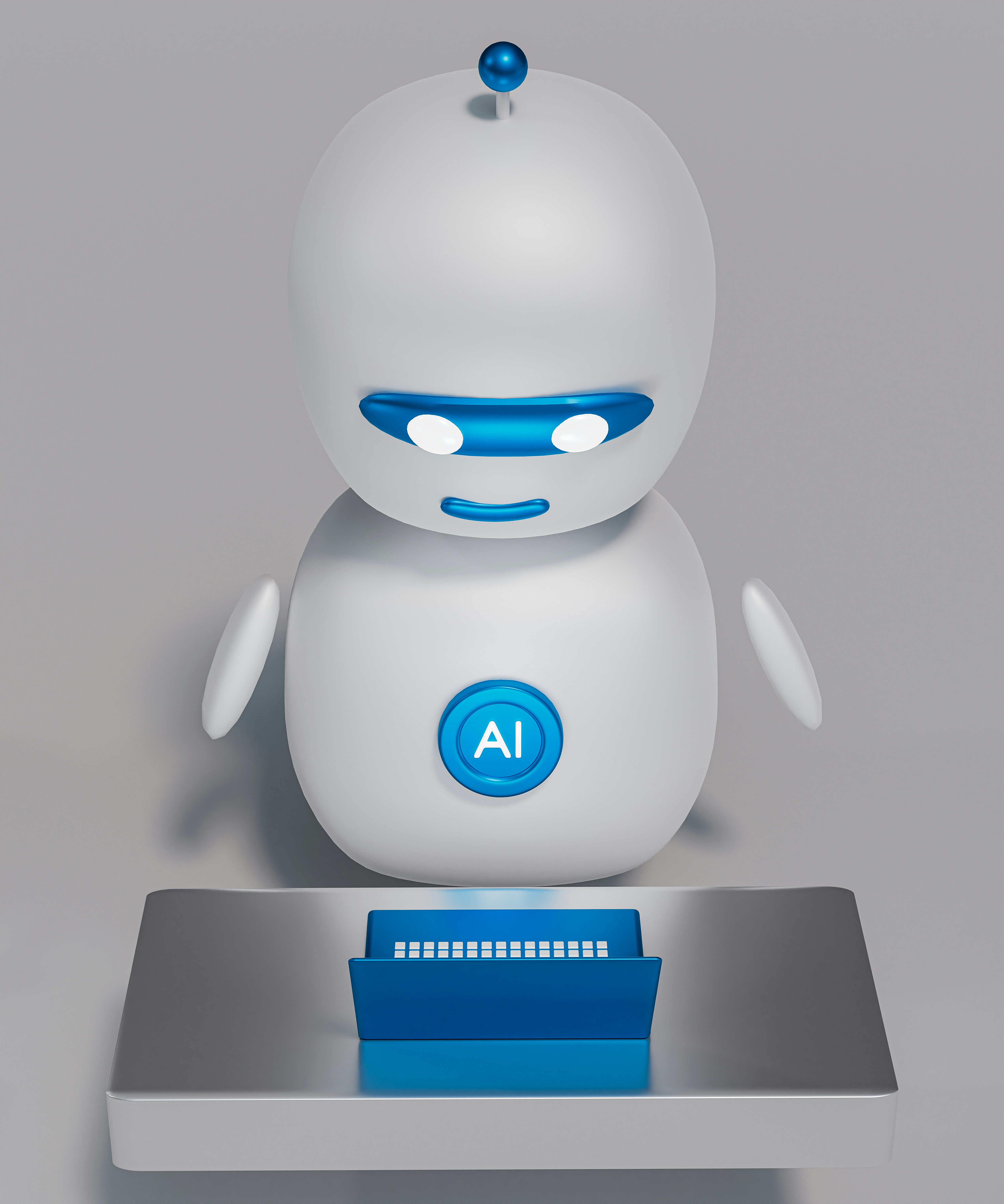
Introduction to AI Agents
Artificial Intelligence (AI) agents are sophisticated software programs designed to perform tasks that typically require human intelligence. These agents can process information and make decisions based on data analysis, enabling them to execute complex functions across various industries. The definition of an AI agent is multifaceted; broadly, it refers to any entity capable of perceiving its environment and taking actions to achieve specific goals. Within this realm, there are different types of AI agents, including reactive agents, proactive agents, and learning agents, each characterized by their ability to respond to stimuli and adapt over time.
The evolution of AI technology has led to remarkable advancements that enhance the functionalities of these agents. From the early rule-based systems to the implementation of machine learning algorithms and deep learning networks, AI has transformed how agents interact with their environments and users. For instance, today’s AI agents can learn from past experiences, improving their performance through iterative feedback loops. This progress has made them increasingly integral in various sectors such as healthcare, finance, and customer service.
As we approach the year 2025, the role of AI agents in business is becoming ever more critical. The integration of AI agents into operational frameworks can streamline processes, optimize resources, and enhance decision-making capabilities. Businesses are beginning to recognize the potential of utilizing AI agents to analyze vast datasets, automate routine tasks, and personalize customer interactions, all contributing to increased efficiency and effectiveness. With the continuous advancements in AI technology, the landscape for businesses is set to transform significantly, making it essential for organizations to understand and harness these tools to remain competitive in the future.
Current Trends in AI and Business
The landscape of artificial intelligence (AI) is swiftly evolving, with a profound impact on various business sectors. Current trends indicate a growing integration of AI agents into daily operations, driven by advancements in machine learning, natural language processing, and data analytics. As businesses increasingly harness these AI technologies, they are realizing significant efficiencies in productivity and enhanced customer engagement.
Market analysis reveals that the AI industry is experiencing robust growth, with projections estimating it to reach $190 billion by 2025. This growth is attributed to increased demand across sectors such as healthcare, finance, retail, and logistics, where AI agents are utilized for personalized services, predictive analytics, and streamlined decision-making processes. Companies are leveraging AI tools to analyze consumer behavior, enabling them to tailor their offerings and improve customer satisfaction.
Emerging technologies, such as automated chatbots and AI-driven customer service agents, are redefining how businesses interact with their customers. These tools not only reduce operational costs but also facilitate 24/7 customer support, thereby enhancing the overall consumer experience. Additionally, the implementation of robotic process automation (RPA) is becoming prevalent, allowing organizations to automate routine tasks and allocate human resources to more strategic functions.
Furthermore, as AI continues to revolutionize business practices, ethical considerations surrounding its use are gaining traction. Companies must navigate challenges related to data privacy and algorithmic bias, ensuring that their AI systems are both effective and equitable. Organizations that proactively address these issues will likely build greater trust with consumers and stakeholders.
In this dynamic environment, businesses that effectively adapt to these trends will not only enhance operational efficiency but also position themselves for sustainable success in the coming years.
Benefits of Using AI Agents in Business
The integration of AI agents into business operations offers a multitude of benefits that can significantly transform the landscape of various industries. One of the primary advantages is increased efficiency. AI agents can automate routine tasks such as data entry, scheduling, and customer inquiries, allowing human employees to focus on more strategic initiatives. This not only accelerates the completion of tasks but also reduces the likelihood of human error, leading to smoother operations and higher productivity levels.
Furthermore, AI agents contribute to cost reduction. By minimizing the need for manual labor, companies can cut down on staffing costs while reallocating resources towards more value-added activities. For instance, a retail business can utilize AI chatbots to manage customer service queries, significantly decreasing the need for a large customer support team. This transition to AI-driven solutions equips businesses to maintain profitability while addressing increasing operational demands.
Another critical benefit of AI agents is the enhancement of customer service. AI systems are available 24/7, providing customers with instant responses to their inquiries, which can elevate customer satisfaction levels. Through predictive analytics, AI agents can also anticipate customer needs and tailor offerings accordingly. This personalized approach fosters stronger customer relationships, encourages brand loyalty, and leads to repeat business.
Moreover, AI agents can analyze vast datasets at unprecedented speeds, offering businesses valuable insights into market trends, consumer behavior, and operational efficiencies. This data-driven decision-making can significantly enhance competitive advantage. Businesses leveraging AI are in a prime position to innovate and adapt, helping them remain resilient in the face of evolving market conditions and consumer expectations.
Real-Life Example: AI Agents in Action
In the rapidly evolving business landscape, the incorporation of AI agents is becoming increasingly prevalent. A notable example can be found in the retail sector, where a mid-sized online clothing retailer, FashionForward, successfully integrated an AI agent into its customer service operations. This case study illustrates the implementation process, challenges faced, and the significant outcomes achieved through this technological advancement.
Initially, FashionForward encountered limitations in handling customer queries efficiently. The customer service team was often overwhelmed by the volume of inquiries, leading to long response times and decreased customer satisfaction. To address these challenges, the management recognized the potential of AI agents to automate responses and enhance user engagement. The decision was made to integrate an AI-driven chatbot capable of managing frequently asked questions and guiding users through their shopping experience.
The implementation process began with selecting a suitable AI platform that aligned with the company’s goals. After thorough research, the team opted for a customizable, machine learning-powered chatbot that could be trained on FashionForward’s unique product offerings and customer interactions. Post-deployment, the AI agent was systematically integrated into the website, guaranteeing seamless interaction between the user and the digital assistant.
In the initial month following deployment, FashionForward experienced significant challenges, including technical glitches and customer resistance to interacting with a chatbot. However, the development team swiftly addressed these issues through iterative updates and by enhancing the chatbot’s learning algorithm based on real-time user feedback. As the AI agent improved, it began to understand and respond to customer inquiries with increasing accuracy.
The measurable outcomes revealed a remarkable transformation; customer inquiry response times decreased by over 70%, leading to a notable improvement in customer satisfaction ratings, which increased by 30%. Furthermore, the operational cost associated with customer support dropped significantly, allowing resources to be reallocated to other areas of the business. This real-life example underscores the profound impact AI agents can have on operational efficiency and customer experience, illustrating their potential for driving business success in the modern economy.
Choosing the Right AI Agent for Your Business
Selecting the appropriate AI agent for your business is a critical decision that can significantly impact your organization’s efficiency and overall success. The first factor to consider is technology compatibility. It is essential to assess whether the AI agent can be seamlessly integrated into your existing systems and workflows. Conducting a thorough evaluation of the current technology stack will help identify any potential gaps or challenges that may arise during implementation. Compatibility ensures that the AI agent can communicate and function smoothly with other tools and software employed within the business.
Scalability is another crucial aspect when choosing an AI agent. As your business grows, the demands on the AI solution will evolve. Therefore, selecting an agent that can scale with your business will offer long-term benefits and mitigate the risks of obsolescence. Investigate the possibilities of upgrading and expanding the solution once it is in place. A scalable AI agent allows for additional features and functionalities to be added as your operational needs change, ensuring that the technology continues to deliver value over time.
Lastly, one must evaluate the nature of tasks the AI agent will handle. Different agents are designed to excel in various fields, from customer service chatbots to advanced analytics tools. Define the specific tasks you aim to automate and analyze which AI agent is best equipped to meet those requirements. Consider the complexity of the tasks, the volume of operations, and the expected outcomes. This understanding is instrumental in aligning an AI solution with your business goals and achieving the desired results.
In conclusion, the process of selecting the right AI agent encompasses assessing technology compatibility, ensuring scalability, and understanding the specific tasks that need automation. A well-considered choice can drive substantial improvements in efficiency and productivity for your business.
Challenges in Implementing AI Agents
The integration of AI agents into business processes presents a multitude of challenges that organizations must address to leverage their full potential effectively. One significant concern is data privacy. As companies begin to implement AI solutions, they are often required to manage and analyze vast amounts of sensitive information. This data must be safeguarded to comply with regulations such as the General Data Protection Regulation (GDPR) and the California Consumer Privacy Act (CCPA). Non-compliance with these laws can lead to severe penalties, damage to reputation, and loss of customer trust, underscoring the importance of establishing robust data management practices prior to AI deployment.
Additionally, there may be resistance to change among employees. Introducing AI agents can disrupt established workflows and challenge employees’ perceptions of their roles within the organization. Employees may fear job displacement or may be wary of relying on automated systems for critical decision-making. To counteract this resistance, companies should foster a culture of openness and promote the benefits of AI agents. Engaging employees from the onset of the implementation process, providing clarity on how AI will complement their roles, and demonstrating successful applications can facilitate smoother transitions and enhance overall acceptance.
Moreover, the need for ongoing training and support is paramount. Organizations must invest in continuous development programs to ensure that employees are equipped with the necessary skills to work effectively alongside AI technologies. This includes not only technical training on the specific AI tools being adopted but also education on data literacy and ethical considerations. Supporting staff throughout the transition helps build confidence in utilizing AI agents, ultimately driving business success in the long term. Companies that address these challenges with foresight and strategy will position themselves to gain a competitive edge in the evolving landscape of AI in business.
Best Practices for AI Agent Integration
Successfully integrating AI agents into business operations necessitates a structured approach that encompasses comprehensive planning, precise execution, and ongoing evaluation. One of the primary best practices for AI agent integration begins with identifying specific use cases that align with the organization’s strategic objectives. Businesses should conduct thorough research to pinpoint the areas where AI can offer significant benefits, such as customer service enhancement, process automation, or data analysis. This foundational understanding allows organizations to tailor their AI agents to meet particular needs effectively.
Following the identification of relevant use cases, the next critical step involves selecting the appropriate technology and tools. Companies must evaluate various AI platforms and solutions to find the best fit for their operational requirements and integration capabilities. Alongside technology selection, organizations should also invest in the training of their workforce, ensuring that employees are equipped to work collaboratively with AI agents. This not only fosters acceptance of AI technology but also enhances the overall effectiveness of the integration.
Execution is another crucial phase of the integration journey. Companies should adopt an incremental approach when deploying AI agents, allowing for pilot testing in less critical areas before full-scale implementation. This encourages refinement and iteration based on real-time feedback, significantly reducing the risks associated with abrupt changes in business processes. Post-implementation, continuous improvement is vital. Organizations must regularly monitor the performance of AI agents, utilizing analytics to assess their impact on business outcomes. This feedback loop can inform necessary adjustments or enhancements to the AI systems, maximizing their effectiveness over time.
Incorporating these best practices for AI agent integration can significantly enhance an organization’s ability to leverage AI technologies for competitive advantage. By focusing on strategic planning, careful execution, and ongoing assessment, businesses can ensure that their investments in AI yield substantial returns.
Future Outlook: AI Agents Beyond 2025
As businesses transition into a new era shaped by the continuous advancement of technology, the role of AI agents is expected to evolve significantly beyond 2025. The integration of sophisticated AI agents into various sectors will likely redefine operational frameworks, making processes more efficient and enhancing decision-making capabilities. With the rise of machine learning and deep learning algorithms, these agents will not only handle routine tasks but will also process complex data to provide actionable insights that drive strategic outcomes.
Advancements in natural language processing (NLP) will facilitate seamless interactions between AI agents and human users, creating a more intuitive and user-friendly experience. By 2025 and beyond, one can anticipate AI agents becoming integral components of customer service and support systems, utilizing advanced sentiment analysis to better understand and respond to consumer needs. This shift towards more personalized engagement may lead to improved customer satisfaction and loyalty, ultimately benefitting a company’s bottom line.
Regulatory impacts will be paramount in shaping the future development and deployment of AI agents. Governments and industry bodies will likely establish guidelines to ensure ethical use, data privacy, and transparency in AI operations. This will necessitate that businesses adapt to new regulatory landscapes while innovating responsibly. Moreover, as AI technology progresses, new applications will emerge in sectors such as healthcare, finance, and manufacturing. For instance, in healthcare, AI agents could assist in diagnostic processes or predict patient outcomes, whereas in finance, they may enhance risk assessment methods.
In conclusion, the trajectory of AI agents in business is poised for substantial growth after 2025. By embracing technological advancements and adapting to regulatory changes, companies can leverage AI agents to stay competitive in a rapidly evolving marketplace, opening doors to a plethora of opportunities and innovative solutions.
Conclusion
As we move forward into 2025, the significance of artificial intelligence (AI) agents in driving business success cannot be overstated. Throughout this blog post, we have explored various aspects of AI agents, including their functionality, benefits, and the transformative impact they can have across different industries. Businesses equipped with AI technologies are positioned to streamline operations, enhance customer experiences, and make informed data-driven decisions that pave the way for sustained growth.
Embracing AI agents offers a strategic advantage in an increasingly competitive landscape. By automating routine tasks, these intelligent systems allow employees to focus on higher-value activities, ultimately fostering innovation and creativity within teams. Furthermore, the ability of AI agents to analyze vast amounts of data in real-time can provide businesses with invaluable insights, empowering them to anticipate market trends and adapt their strategies accordingly. It is evident that organizations that harness AI effectively stand a better chance of thriving in an evolving environment.
To fully realize the potential of AI agents, businesses must not only invest in the right technology but also cultivate a culture open to innovation and change. This may involve re-evaluating existing processes, providing training for staff to leverage AI tools, and fostering collaboration between human talent and AI capabilities. By taking actionable steps towards integrating AI into everyday operations, businesses can secure a competitive edge as they prepare for future challenges.
In summary, the integration of AI agents is not merely a trend but a necessary evolution for organizations aiming to succeed in 2025 and beyond. By understanding their importance and leveraging their capabilities, businesses can lay the groundwork for a more efficient, innovative, and successful future. The journey toward AI integration may be complex, but the rewards are well worth the investment as companies navigate the landscape of tomorrow.




